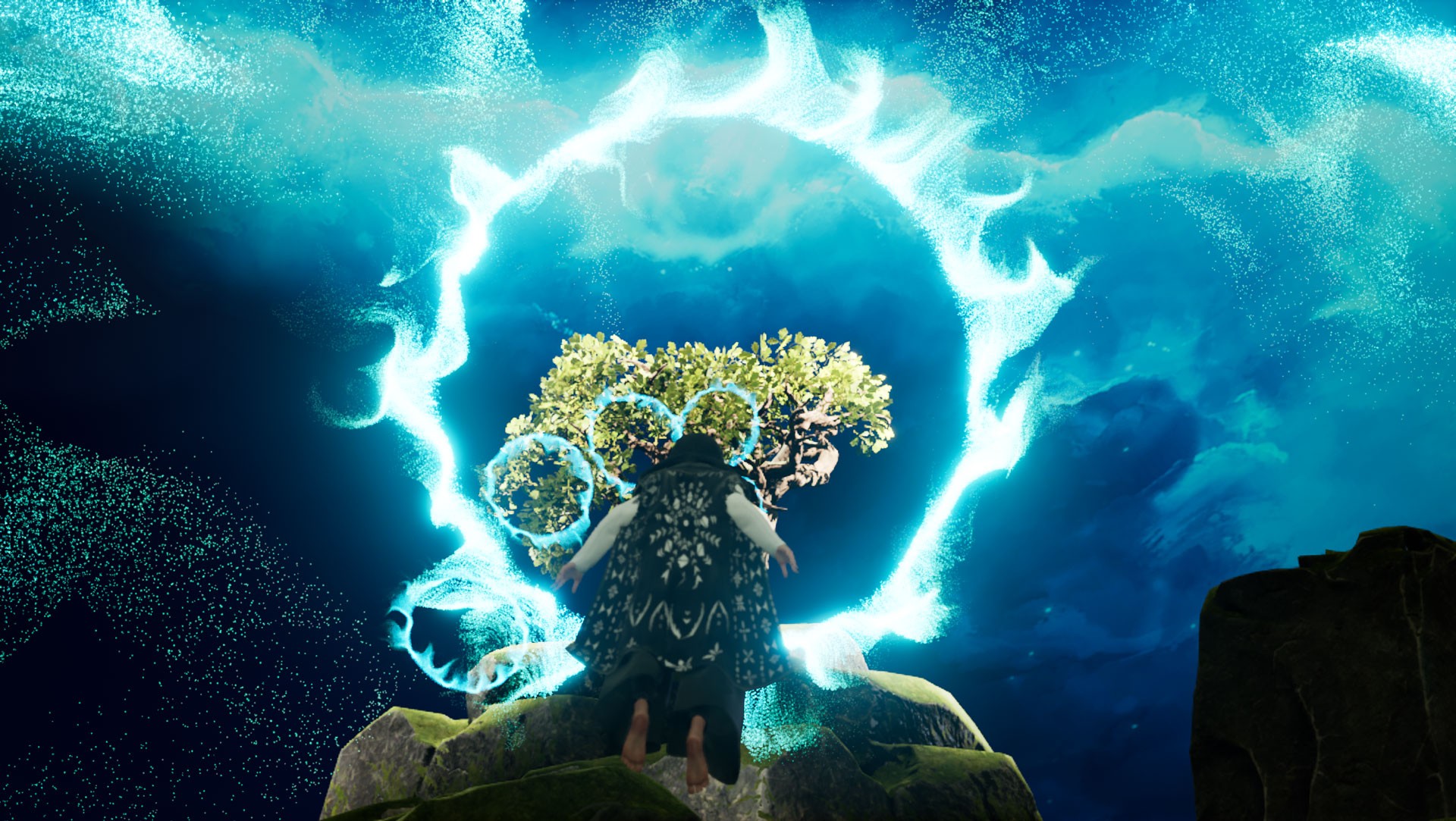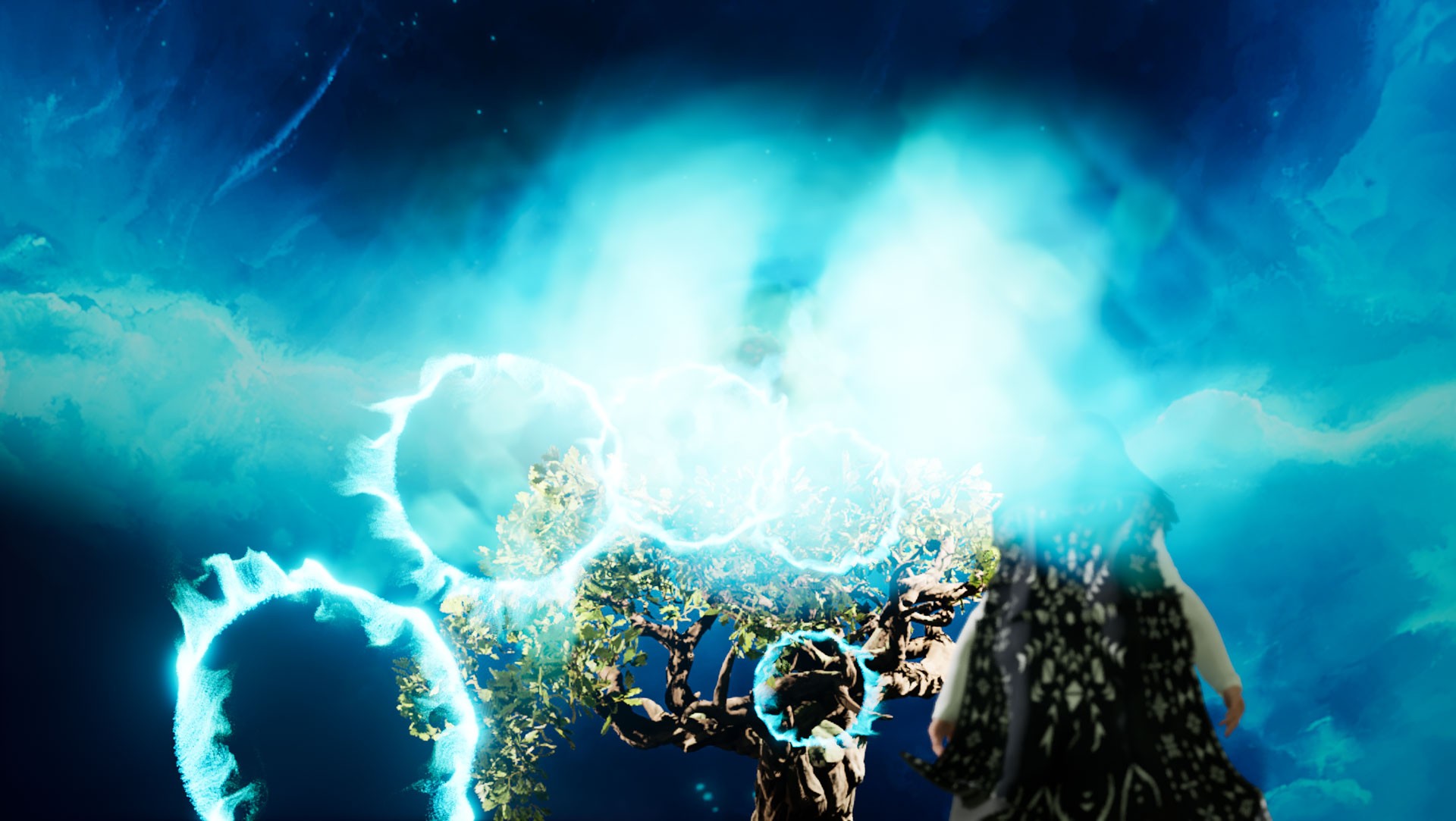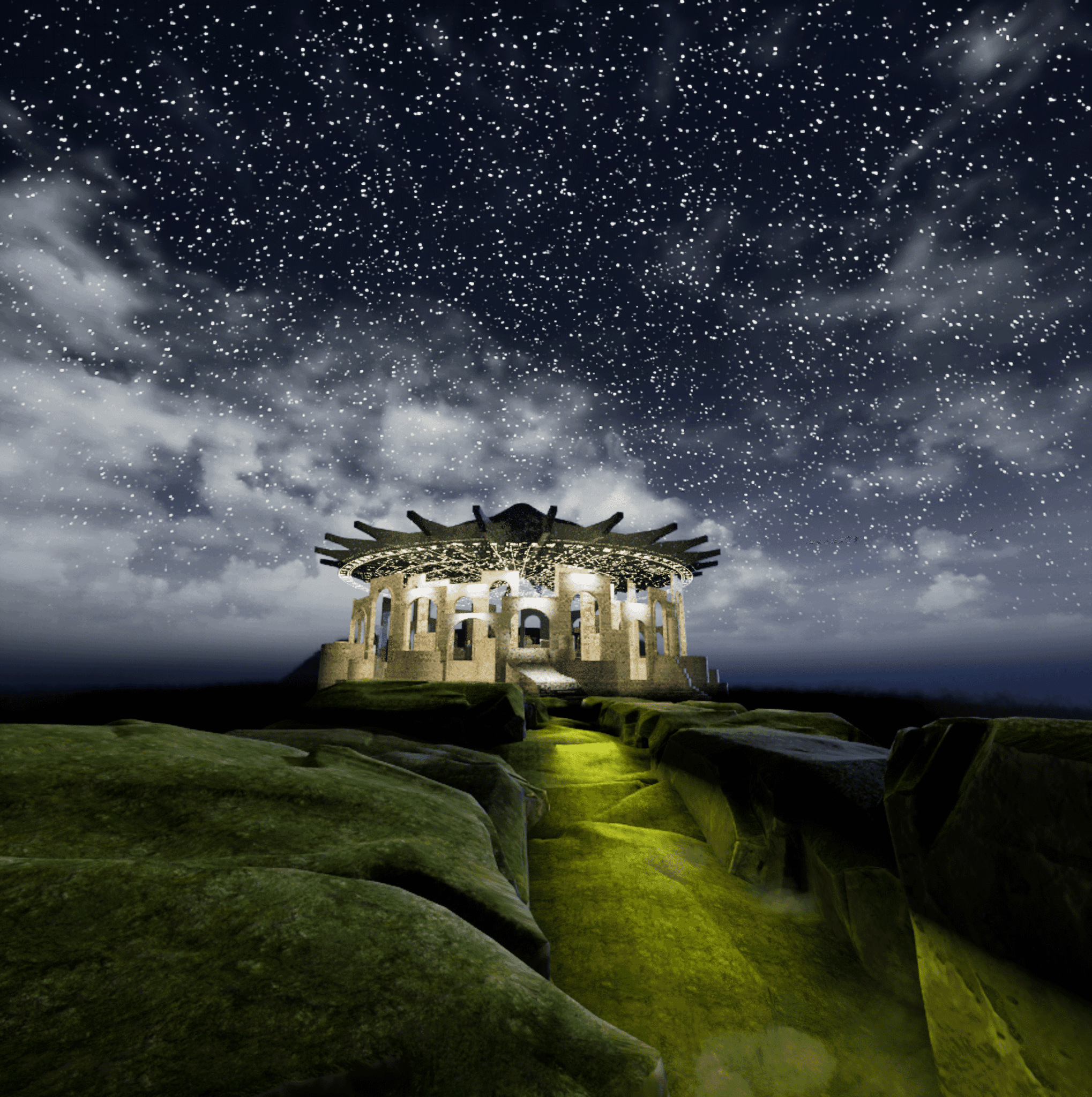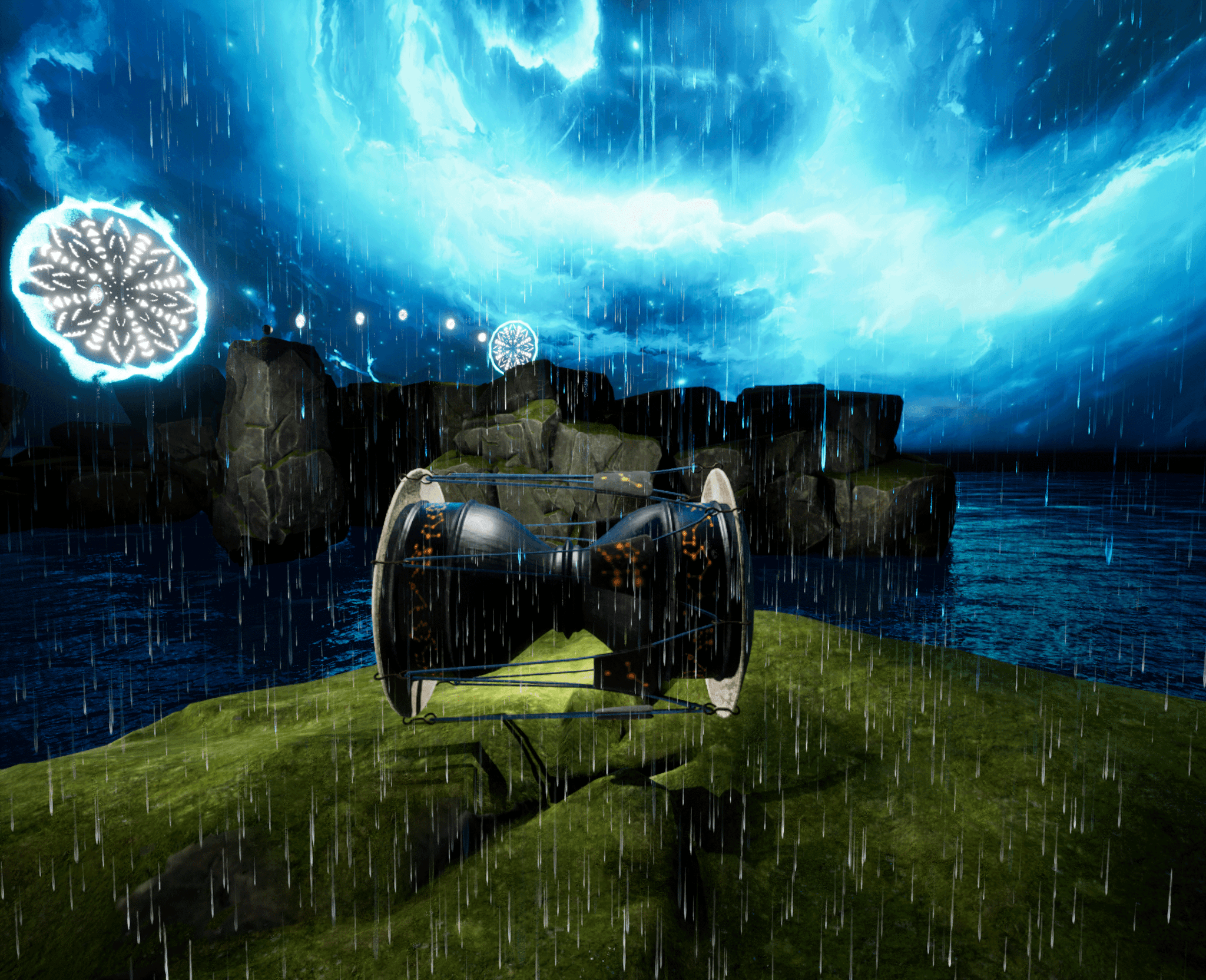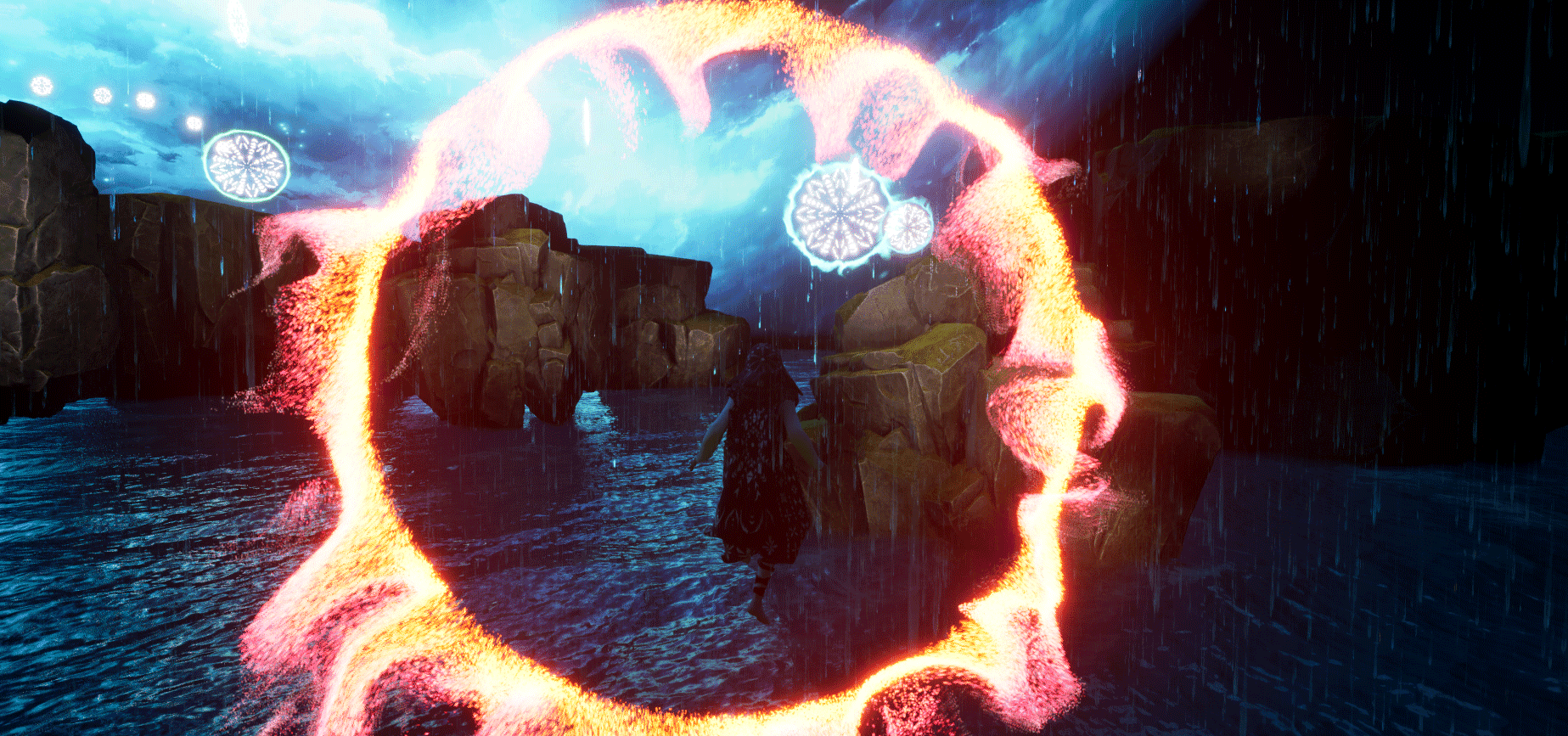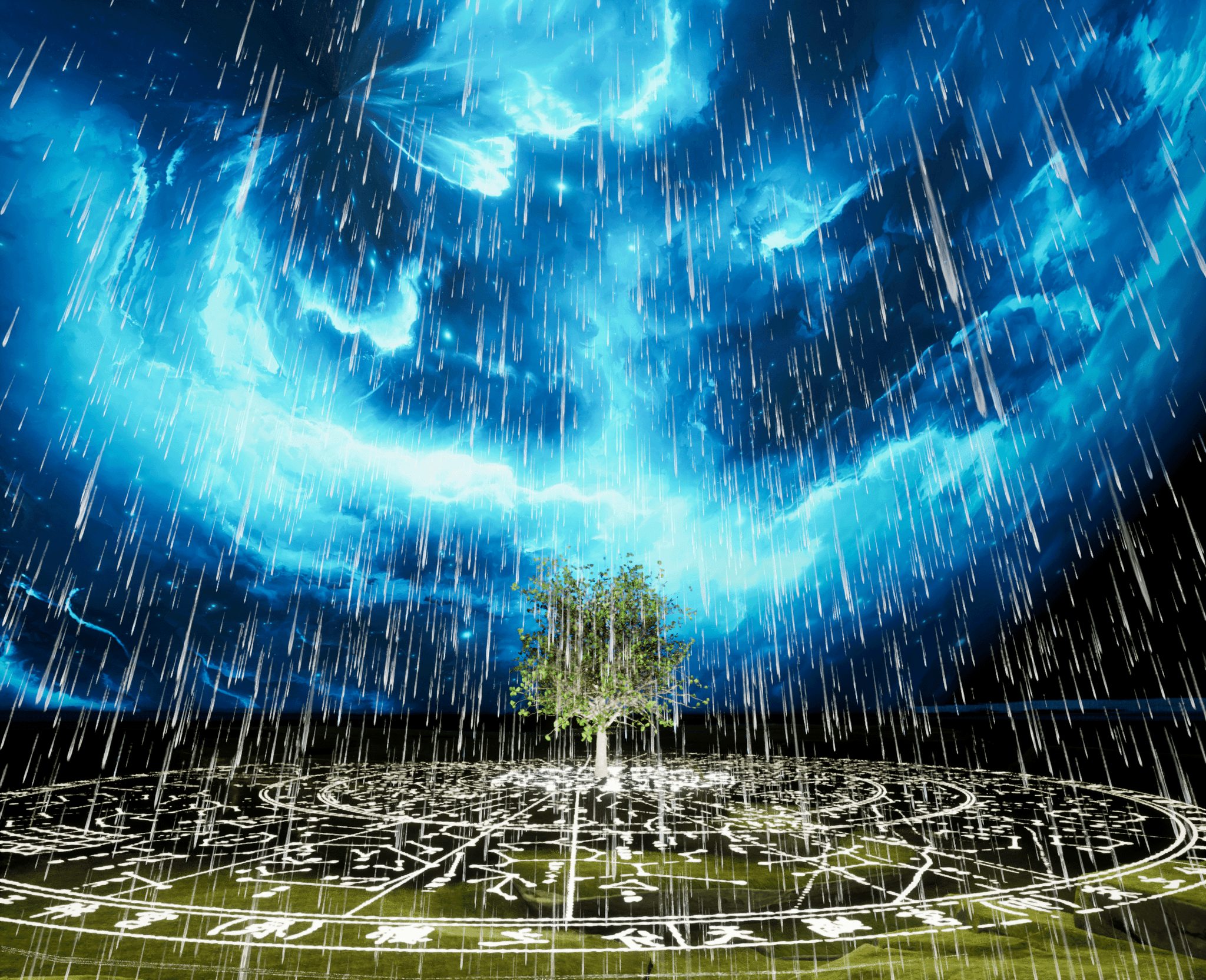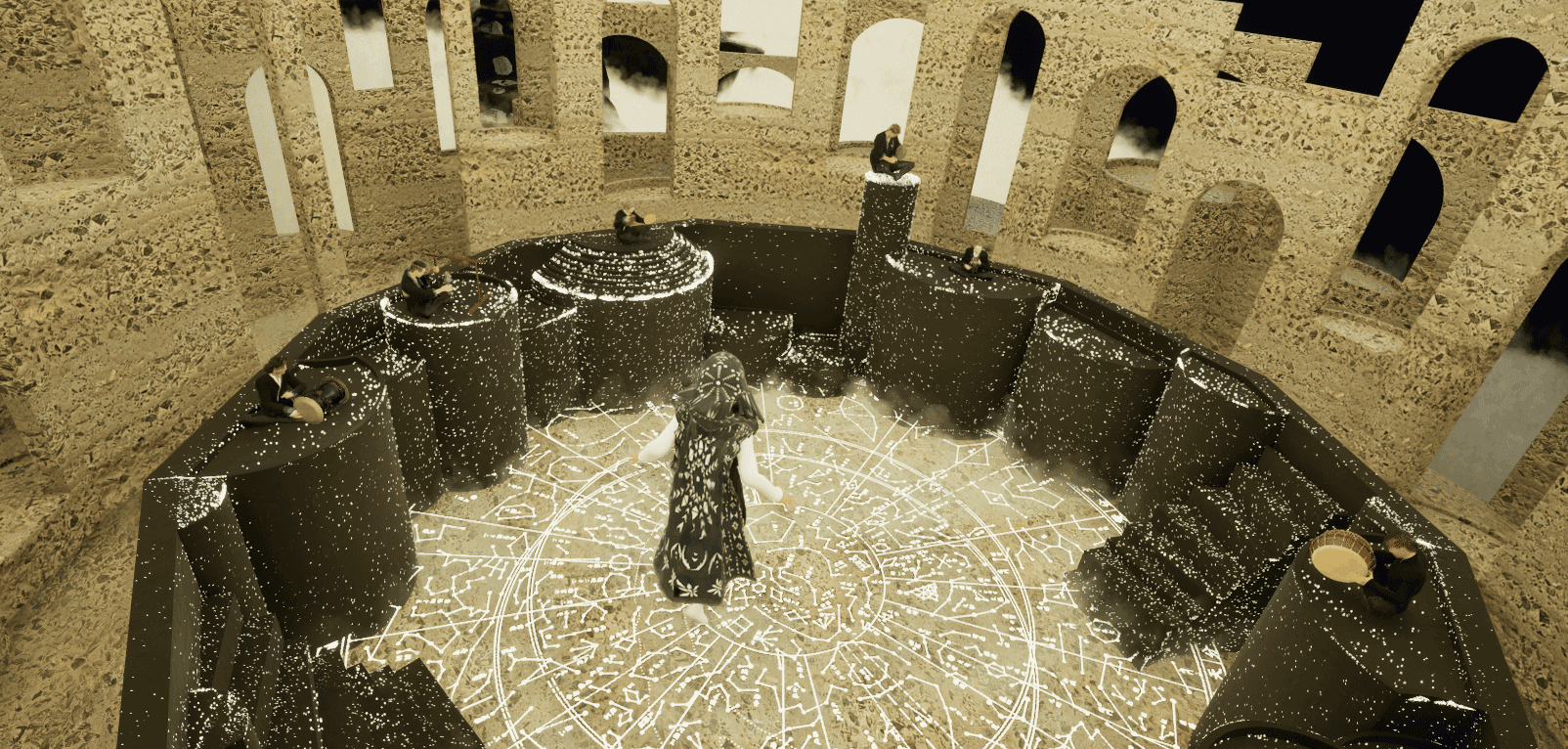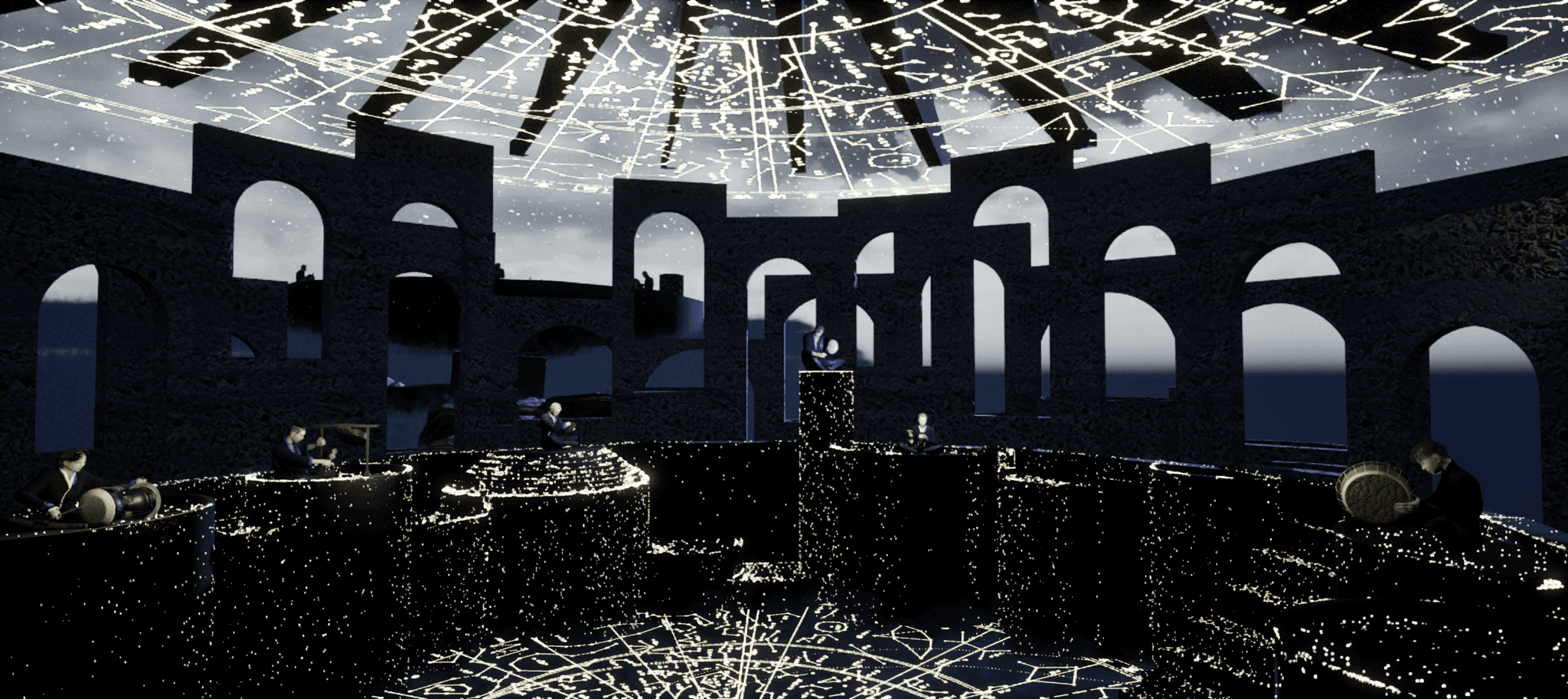05 Haneul-Olle: Clouds, Rain, Wind, and Thunder
The four traditional Korean percussion instruments
—drum, janggu, gong, and kkwaenggwari—
capture the sounds of nature, symbolizing clouds, rain, wind, and thunder.
As storms rage from the heavens, their powerful rhythms descend,
washing away negativity and purifying the earth.
These resonant sounds embody renewal and harmony.
making story.
Haneul-Olle’s stage, Unu Pungrae,
celebrates nature’s sounds through traditional Korean percussion instruments:
the drum, janggu, gong, and kkwaenggwari.
Each symbolizes clouds, rain, wind, and thunder, embodying the elemental forces of nature.
As the storm rages from the heavens, the powerful rhythms cleanse the earth of all negativity.
Rooted in the tradition of “Unu Pungrae,” this performance transforms the connection
between earth and sky into a musical purification ritual,
offering audiences a resonant and immersive experience of harmony and renewal.
Jeju, often called the Island of Myths, is home to 18,000 gods,
yet it suffers from wounds inflicted by modern development and pollution.
Miyeojibaengdui began with the question, “Do the gods still dwell in Jeju?”
The Haneul-Olle stage, a climactic moment of the performance,
uses the sounds of Unu Pungrae to purify and heal Jeju.
With every space left free of greed, the small gods of Jeju return,
embodying the message of coexistence between nature and humanity,
carried through the resounding beats of traditional percussion.
